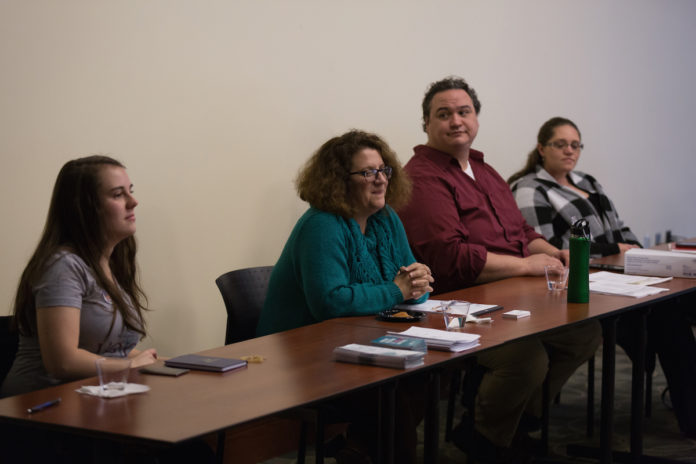On Nov. 7, the Student Health Advisory Board (SHAB) held its second meeting of the semester to discuss sexual assault on college campuses with a panel-led discussion.
The meeting topic was determined after SHAB members completed a survey on what topics they would like to cover in the 2017-2018 academic year. The top two answers were mental health, which was the topic of the Sept. 26 meeting, and sexual assault.
“They [students] felt they did not know enough about what Title IX actually was and wanted more knowledge about that,” Carly Thorne, chair of SHAB, said.
Panelists included Karla Fonner, director of student support; Joe VanHannak, counselor from the Counseling Center; Holly McCoy, Title IX coordinator and Valerie Pearson, systems advocate at Victim Outreach Intervention Center (VOICe). VOICe is a Butler County-based provider of confidential support and resources to survivors of sexual assault domestic violence.
The meeting opened with introductions and an explanation of how Title IX, a federal law from 1972 that prohibits gender discrimination in K-12 and postsecondary schools that accept federal funds, relates to sexual assault and harassment.
“Title IX encompasses a wide range of issues and concerns surrounding really gender and equality, and so one of those dimensions is sexual violence and assault and ensuring that individuals who are survivors or victims of sexual violence receive appropriate information and resources and have access to services,” Renee Bateman, health promotion coordinator, said.
Discussions from the meeting included steps to take immediately after an assault, the role of a bystander, online dating, stalking and resources for an aggressor of sexual assault. Fonner also reported that Student Support receives an average of two reports related to sexual assault or harassment per week.
Based on surveys attendees completed after the panel discussion, advice on how to be an active listener for a survivor of sexual assault was a memorable part of the panel.
“’Why were you out at two in the morning?’ That really implies you did something wrong,” VanHannak said. “Sometimes those stick in people’s heads more than the actual assault.”
For survivors of sexual assault, the Just in Case app lists confidential and non-confidential sources that people can access both on and off campus.








